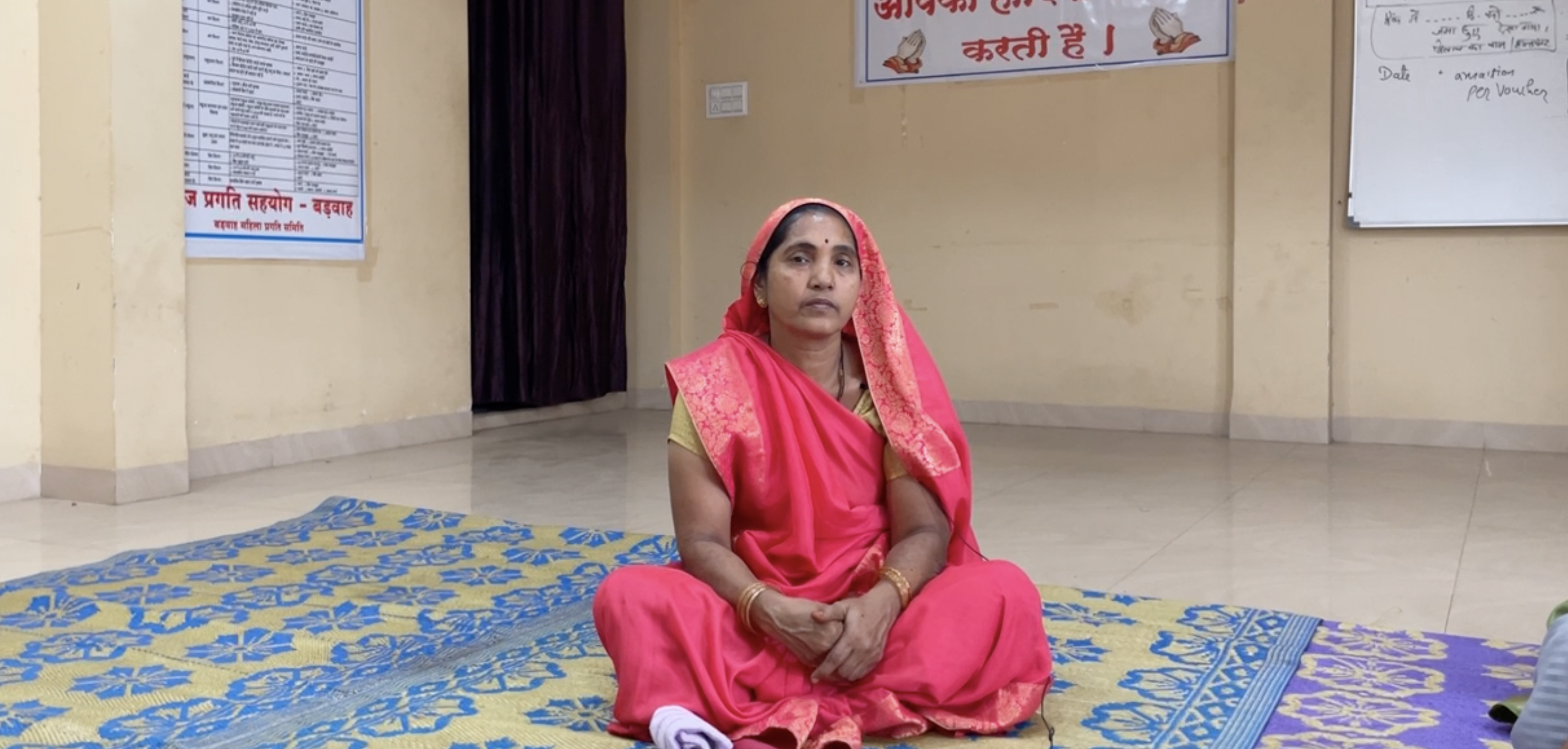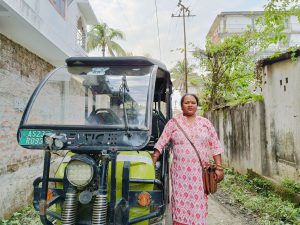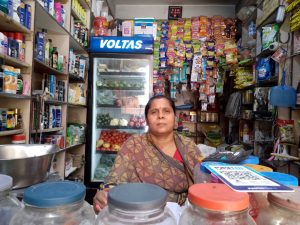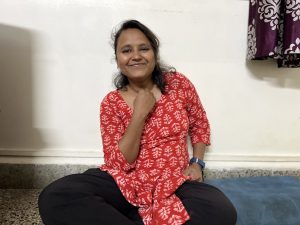[Readmelater]
‘Our Financial Situation Is So Bad That Our Relatives Have Stopped Visiting’
Carrying the burden of an eight-year-old debt, 50-year-old Karuna Kale from Madhya Pradesh’s Barwaha almost broke down while talking about the financial condition of her household

Karuna Kale, 50, at a local NGO’s office in Madhya Pradesh’s Barwaha/Shreya Raman
Support BehanBox
We believe everyone deserves equal access to accurate news. Support from our readers enables us to keep our journalism open and free for everyone, all over the world.




